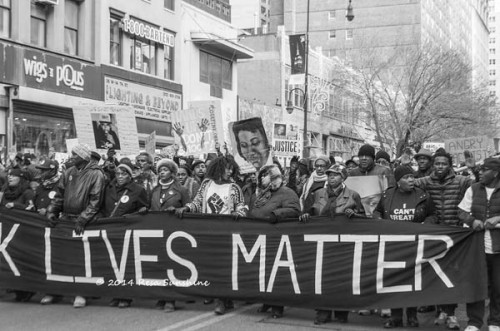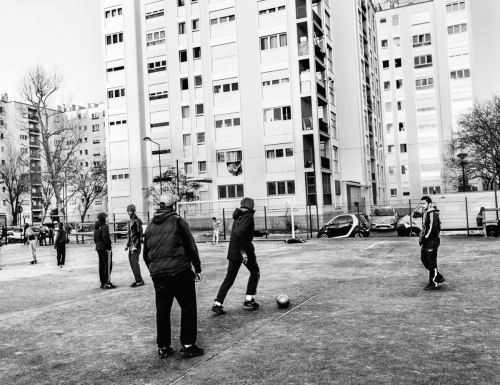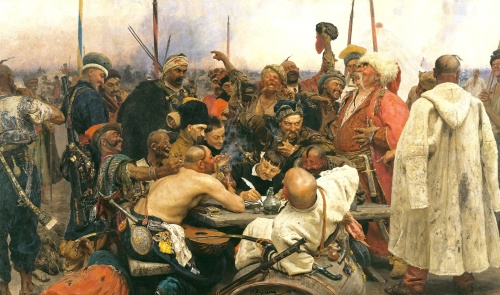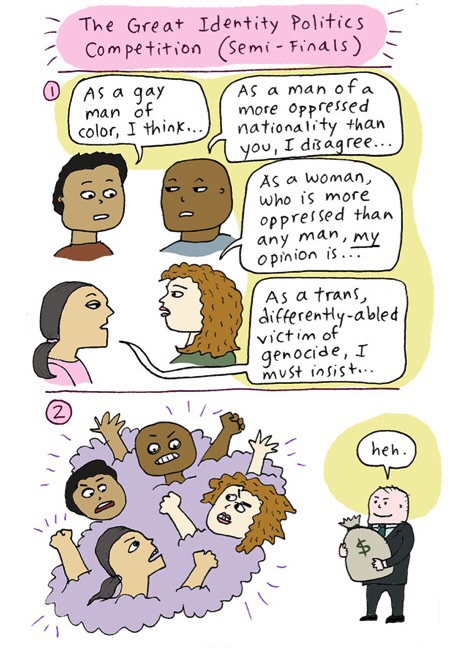
This essay will annoy, piss-off, and bring denunciations from some of my friends and colleagues. That’s fine. One of the things that politically engaged people who are striving for substantial structural social change fail to do is to identify those things which make success difficult. And that starts by looking at ourselves.
I am a white, male, heterosexual, meat-eating, butter-slathering, well-off, whiskey-drinking, cigarette-smoking, elderly professional. Many people looking at that description would assume that I am either a racist insurance salesman thrill-riding with police as an auxiliary cop in Oklahoma, or a corporate shill tea-bagging at a Koch brother’s fundraiser and wreaking environmental carnage. More gentle and refined folks might give me the benefit of the doubt. They might picture me as someone wearing a tweed sport jacket, with the obligatory leather elbow patches, smoking a pipe, adjusting my suspenders and musing over some arcane text while ignoring the ravages of racism, sexism, imperialism and capitalism that grant me the privilege of a comfortable but relatively useless life. In fact, many people who know me marvel that I am not precisely that. After all it is my assigned role in life and only a psychopath would not protect the advantages and privileges bestowed on him.
The point is that my identity and my individual choices are irrelevant to advancing the cause of substantial structural social change, which incidentally I happen to support by any means necessary. Excessive attention to differences, individualism and lifestyle choices dilute any comprehensive approach to changing economic, political and social reality in the United States and the world. As Jock Young pointed out, in late modernity we all struggle with ontological insecurity. That’s not an accident. That very social structure many of us wish to change makes ontological insecurity inevitable. In fact, ontological insecurity is a valuable weapon in their fight to maintain power and control. If they can divide society by race, gender, food choice, sexual preference or any other “difference” they can slow down and impede organizational efforts to get rid of them.
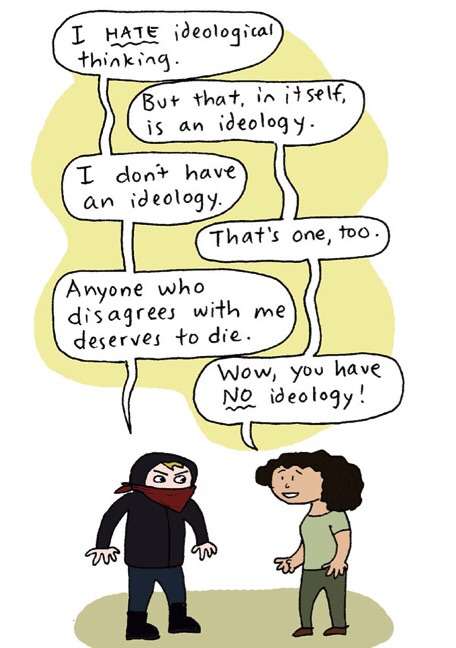
Intersections and race
Racism isn’t a disease. It isn’t a psychological disorder. It isn’t a cultural identity. Racism, simply put is a form of oppression. Racism is one of many forms of oppression which interact to create pervasive systems of discrimination and, more importantly, powerful systems of social control. Racism, sexism, patriarchy, homophobia, immigration status and other categories of social exclusion are not simply personal problems, although they have deeply personal ramifications. Racism is one of many very powerful weapons used in society to achieve three goals:
First, it is used to justify economic and political policies which protect and reinforce power. Demonizing, dehumanizing, objectifying and socially excluding people is an ideological weapon used by those in power to divide us, dominate us, and make structural conditions that would otherwise be recognized by any thinking person as cruel, barbaric and insane, seem normal and reasonable. Simply put, it is a weapon that rationalizes the horrific and the unacceptable.
Second, racism is used to create economic conditions where some people, particularly women and socially constructed racial groups, are easier to exploit. Social exclusion creates a situation where wages and salaries can be depressed and entire social groups can be forced to accept menial, servile and dehumanizing work.
Third, racism, sexism, homophobia and the rest are effective tools of division. Those most disadvantaged and oppressed in society can be manipulated into patterns of distrust, hatred and discrimination. They also can, and often do, give a sense of power to whites, men, heterosexuals, and “citizens” which prevents those most disadvantaged and exploited in society from working together to confront the real sources of their problems.
In the United States our socially constructed definitions of race and ethnicity are constantly changing and adapting to the needs of power. Racism in all its forms has been a remarkably adaptable device used throughout our history to justify the mistreatment and dehumanization of millions of people. Of course the obvious examples are slavery and genocide. The enslavement of African-Americans was absolutely vital to the growth of the American economy. It buttressed agricultural production in the South and industrial production in the North where the products of slavery were manufactured into commercial goods. It provided enormous revenues from foreign trade and tariffs and excised taxes to fund the state. “Manifest destiny” and the occupation of the North American continent was achieved by genocide and war directed at Native American peoples. The geographical expansion and subsequent resource extraction which fueled the American economy was dependent on barbarism and slaughter. We also sometimes forget the other omnipresent forms of racism and discrimination.
If you remember there was a time in this country when whites hated white people. The white puritans of the Plymouth Colony threw out other white puritans! A system of exploited labor requires that someone, even if they look just like us and think just like us, must be dehumanized and vilified to justify their lack of privilege. The Irish were brought to the new world in indentured servitude to work the fields and build the cities. They were vilified as Papist drunks and housed in the most horrifying ghettos. Italian immigrants necessary to the shrimp and fishing industries were denounced as criminals. East European Jewish immigrants were blamed for prostitution even though the sex trade was well established as long ago as the Plymouth colony. The Chinese were brought here to build the railroads and then denounced as drug fiends. Mexicans, both in the 1930s and today are imported by labor leasing companies and consigned to the most demeaning labor, particularly in agriculture, and then blamed for the horrors of marijuana.
From the first Puritan settlers who eviscerated the Pequot tribe and the import of African slaves to today’s disingenuous and phony “war on terrorism,” racism and social exclusion has been a powerful weapon to justify violent and repressive policies at home and abroad, to create a compliant and divided populace, and to offer privilege and advantage to some at the expense of others. The point of all of this has been to reinforce and protect the economic, political and social power of the ruling elite.
The question is, of course, what do we do about all of this? Liberal reformists tell us that the answer is to extend some privileges to others while making certain their own privileges are not in any way inconvenienced. “Equality” sounds good. But if society is to pursue equality someone has to give something up to get there. It is populism at its worst. “Equality” is, in fact, a highly desirable goal. Fighting for equality can bring people together. It can expose the structural inequities of the system. It is positive; it is progressive and offers the opportunity to bring people together. But, it’s not enough.
Read the rest of this entry »
